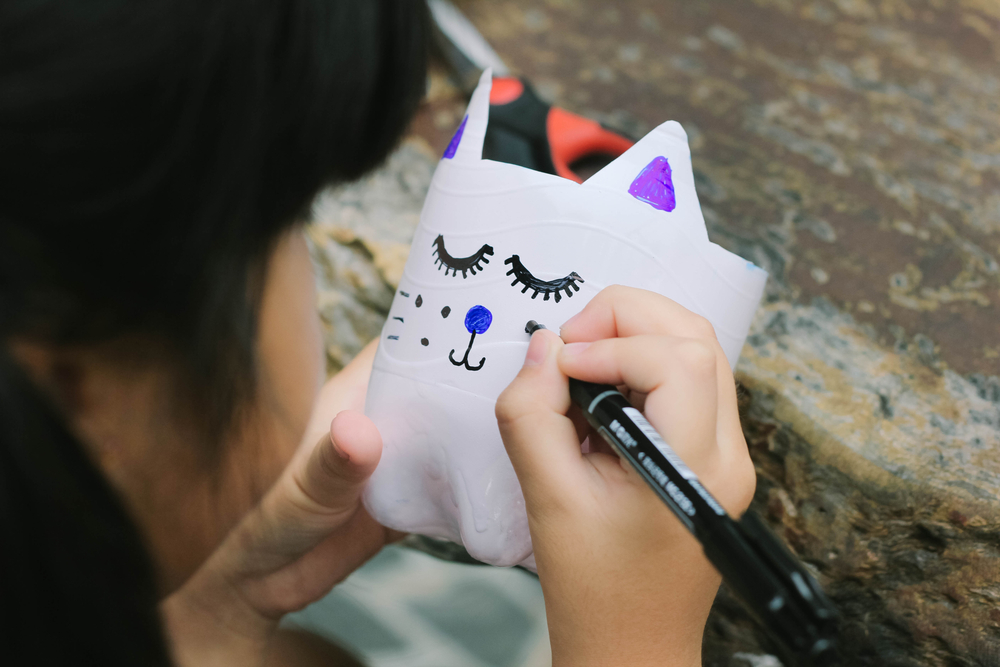Improving vocabulary Reading Worksheets for 4-Year-Olds
5 filtered results
-
From - To
Enhance your 4-year-olds' language skills with our "Improving Vocabulary Reading Worksheets." These carefully designed worksheets focus on enriching vocabulary through engaging activities that promote language development. Kids will enjoy a variety of interactive tasks, including matching words, identifying pictures, and circling familiar objects. Each worksheet is tailored to suit young learners, making reading fun and educational. With playful illustrations and easy-to-follow instructions, these resources help cultivate a love for words while improving comprehension and communication skills. Empower your preschoolers to express themselves better and boost their confidence in language with our delightful reading worksheets today!
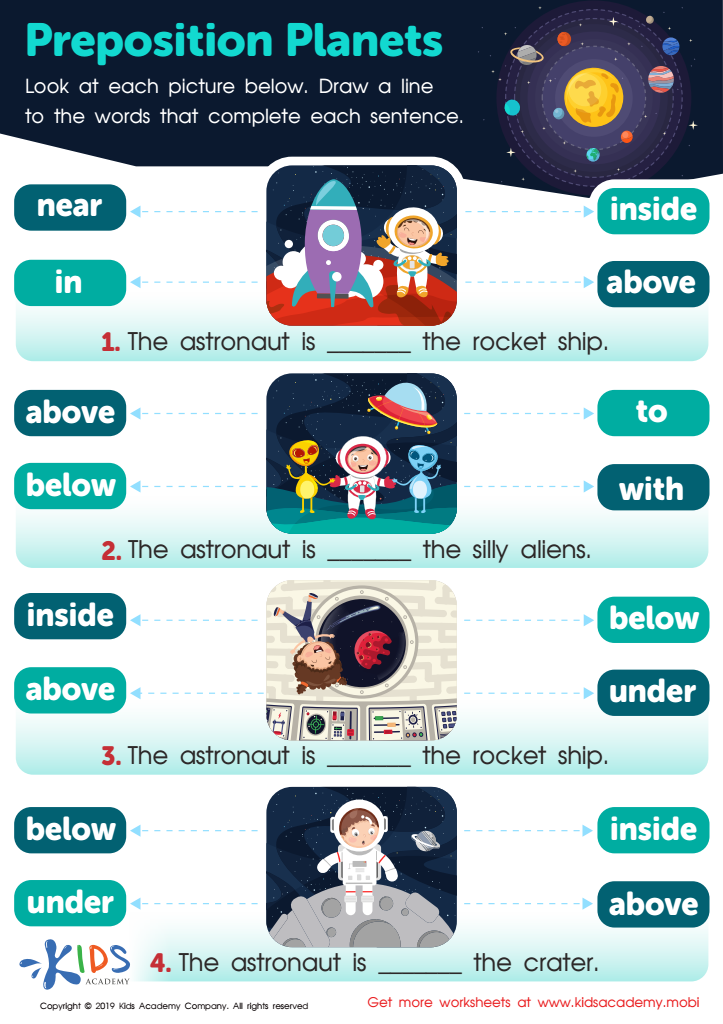

Preposition Planets Worksheet
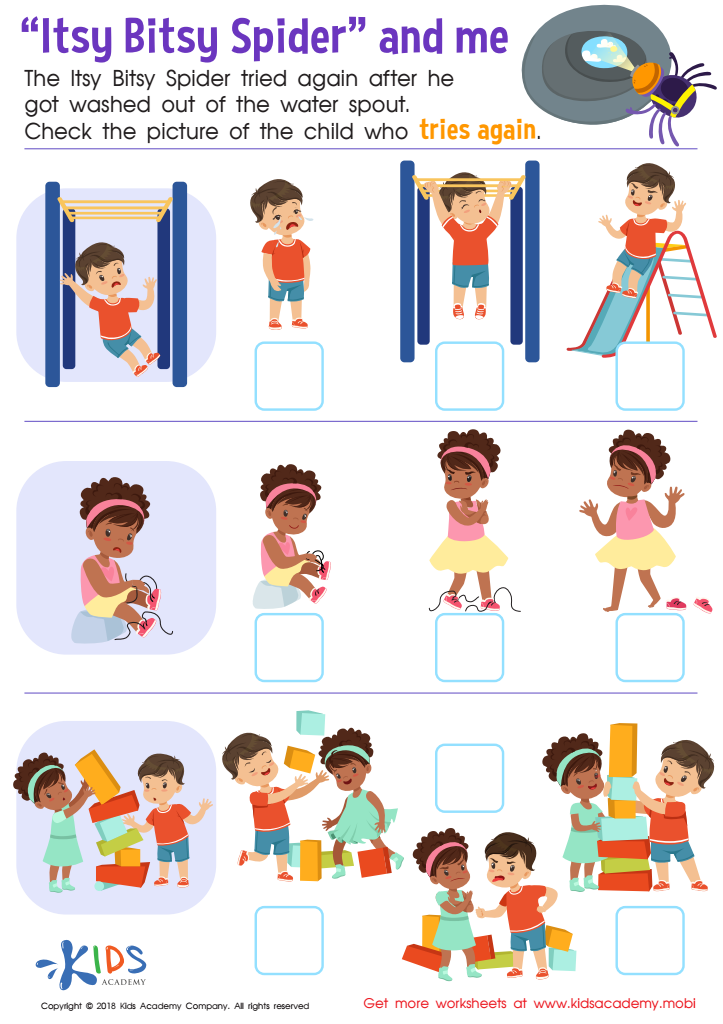

Itsy Bitsy Spider and Me Worksheet
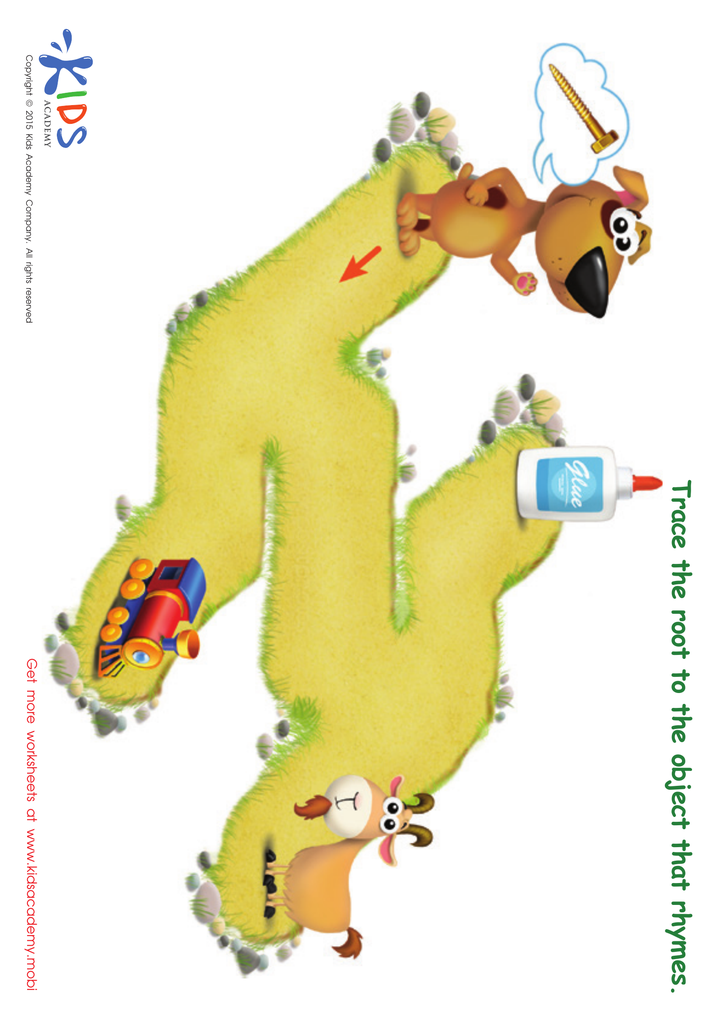

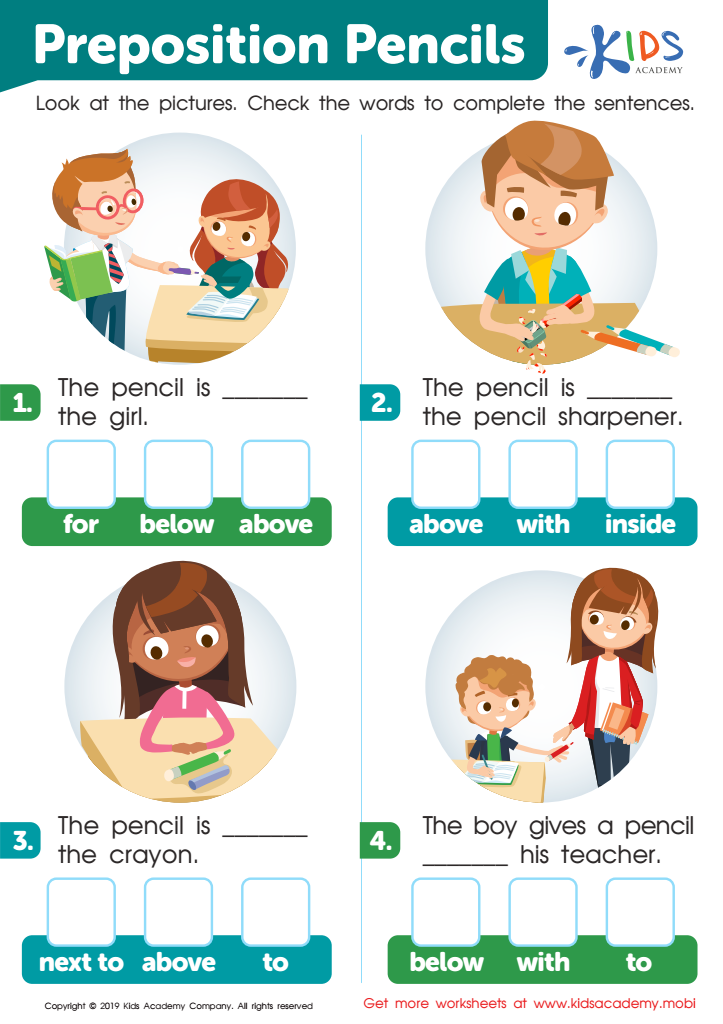

Preposition Pencils Worksheet
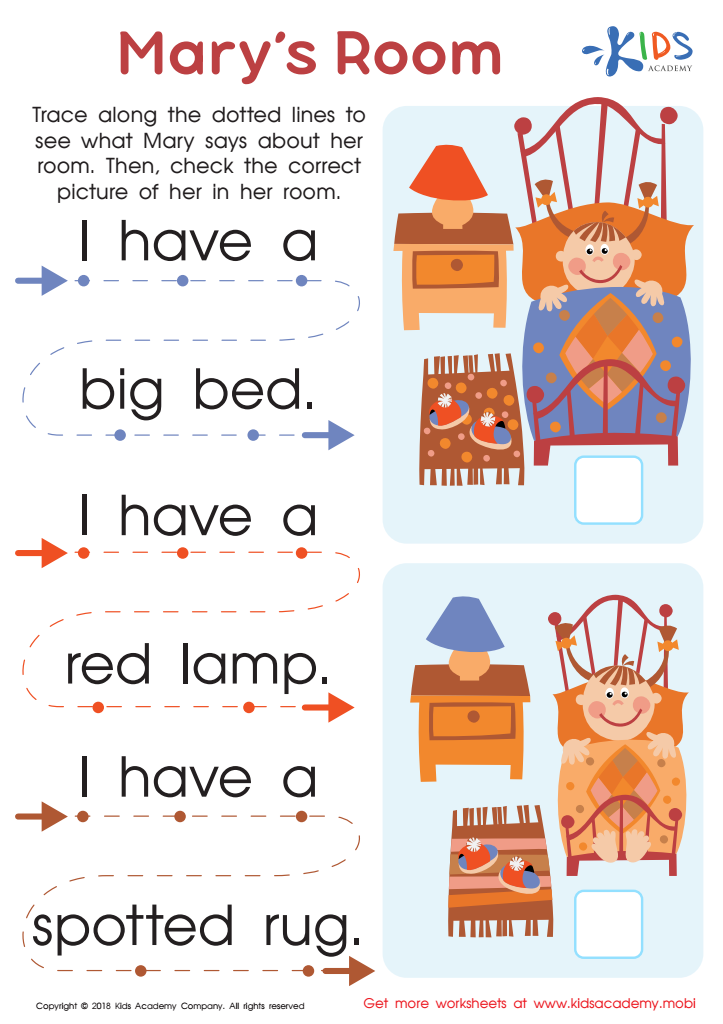

Mary's Room Worksheet
Improving vocabulary and reading skills in 4-year-olds is crucial for their overall development and future academic success. At this age, children's brains are highly receptive to language, and the words they learn become building blocks for their communication abilities, critical thinking, and comprehension skills. A robust vocabulary enhances their ability to express thoughts, emotions, and ideas, leading to better social interactions and self-confidence.
Reading together fosters a love for books and storytelling, stimulating imagination and creativity. It introduces young learners to diverse cultures and experiences, laying a foundation for empathy and understanding. Enhanced language skills from early reading also contribute positively to future literacy; children who read at an earlier age tend to become stronger readers and performers in school.
Moreover, developing vocabulary early means children are better prepared for more complex language structures they will encounter as they progress academically. Parents and teachers should prioritize engaging vocabulary activities, such as interactive reading sessions and enriching conversations, ensuring children are equipped for the challenges of formal education. Overall, a focus on vocabulary development in early childhood nurtures lifelong learners, leading to academic success and personal growth.

 Assign to My Students
Assign to My Students





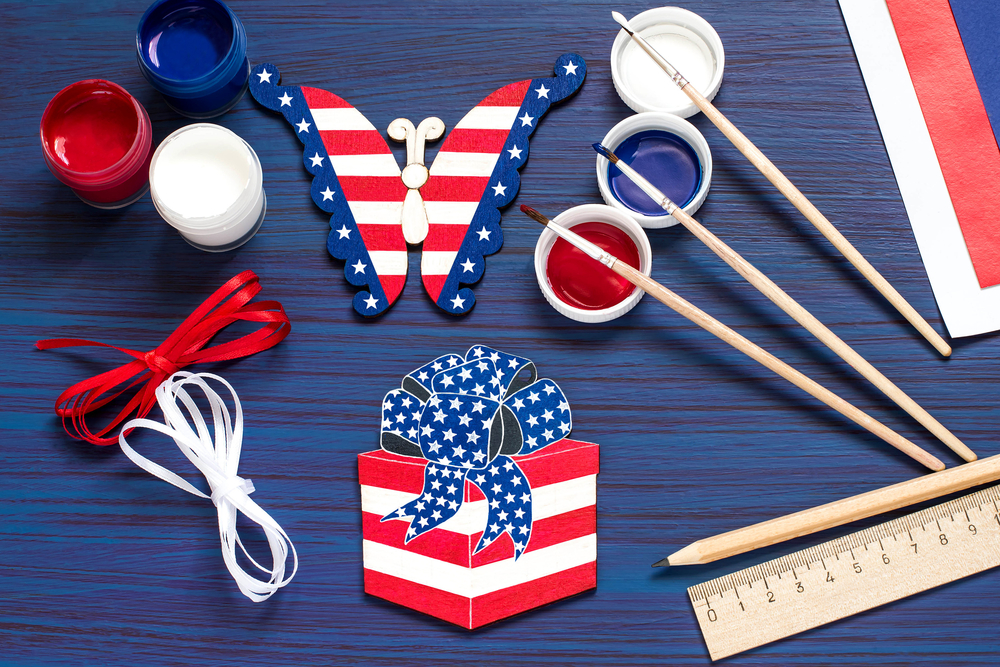

.jpg)
